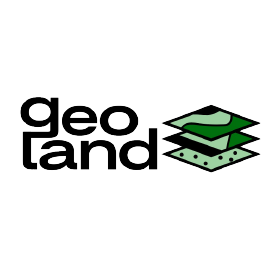“Landscape means an area, as perceived by people, whose character is the result of the action and interaction of natural and/or human factors” (Art.1 of European Landscape Convention (ELC)). Landscape is both a physical reality and the representation that we make of it. It is the face of land with all its natural and anthropological elements and, at the same time, the feelings and emotions that it arouses in us when we see it. The ELC (aka the Florence Convention, 20/10/2000 came into force on 1/3/2004, Council of Europe Treaty Series no. 176) indicates that assessment of different dimensions that exist in landscapes should be taken into account. ELC aims to encourage public authorities to adopt policies and measures at local, regional, national and international levels for protecting, managing and planning landscapes throughout Europe. The Covid-19 crisis seems to have hit a pause to these policies and activities, but it is not the time to ignore such issues nor forget about the training of trainers, students and citizens required to achieve these objectives.
With this situation in mind, the European project “GEOLAND – Digital Educational Geoinformatic Methodologies for Monitoring Landscape” focuses on NATURA 2000 sites, a network of protected areas covering Europe’s most valuable and threatened species and habitats. It is the largest coordinated network of protected areas in the world, extending across all 28 EU countries, both on land and at sea.
To seek this goal, a consortium of 7 European partners are joining forces. The consortium includes FORTH as coordinator, Atlantis Engineering, European Digital Learning Network, EUROGEO, Ghent University, RCCI – Ruse Chamber of Commerce and Industry, and the University of Zaragoza as partners.
The main objectives of the GEOLAND project are the training of students and professors from the Universities of Spain (University of Zaragoza), Belgium (University of Ghent) and Bulgaria (Sofia University) in the use of geoinformatics tools and methods (Satellite Remote Sensing and Geographic Information Systems). med at the monitoring and evaluation of landscape quality in NATURA 2000 areas.
The consortium intends to fulfil these objectives by
- Promoting the latest digital innovative technologies for Landscape monitoring in Higher Education.
- Supporting the ELC comprehension from students regarding the knowledge of the landscapes (identification, analysis, assessment) and the definition of Landscape Quality Objectives in higher education.
- Bringing progress towards a coordinated and targeted approach to the best use of geospatial technologies and relevant data and their fusion on a multidisciplinary level in educational landscape ecological services.
- Supporting the participation of students in environmental monitoring and landscape management.
- Synthesizing and integrating readily communicable, to a wide audience, findings suitable for awareness-raising and policy negotiations among students in Europe.
- Highlighting the role of training students in real-life interaction between them and available geoinformatic technologies to set up a successful format.
In addition, the purpose and objectives of the GEOLAND project will be implemented through the development of 5 intellectual productions:
- Educational Handbook for monitoring European Landscape
- Training Course – Web based GIS platform
- Policy outreach activities
- Online gallery of student’s work
- Digital educational readiness assessment tool.
Different types of methodologies will be used and test all along the project lifetime to develop it at its best. The consortium will
- explore and develop educational procedures for the effective participation of Higher Education (HE) students in decision-making for landscape management, planning and protection of NATURA 2000 sites.
- enable the uptake of novel ways to engage and empower HE students in environmental science and stimulate participatory decision-making. In particular, it will provide the opportunity to students, citizens & stakeholders being interested in the definition and implementation of landscape policies to play an active part in setting sustainability indicators of desirable landscape quality objectives (Landscape Quality Objectives/LQO).
- attempt to identify and summarize the environmental/cultural stratification in the examined landscapes through a sophisticated Landscape Character Assessment (LCA). On the basis of this Assessment, the capabilities of geospatial technologies (Earth Observation and Geographic Information Systems) and web-based GIS applications will be exploited.
- encourage/introduce innovative pedagogies (citizen science), technologies and state of the art approaches (LCA) to higher education studies in Europe, while addressing issues of teaching and learning about Landscape as a multidisciplinary subject area in universities.
Stay up to date on the project online:
Visit the website: www.geolandproject.eu
Follow the project activities on
- Facebook: @GEOLANDthePROJECT
